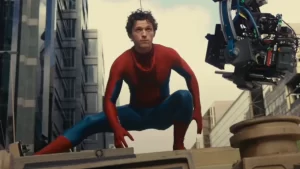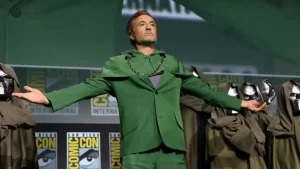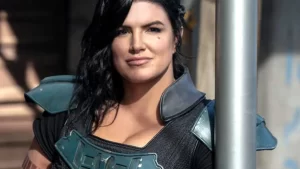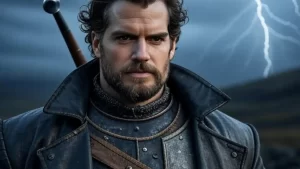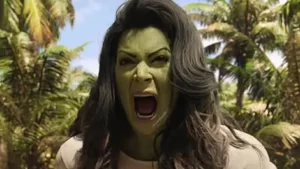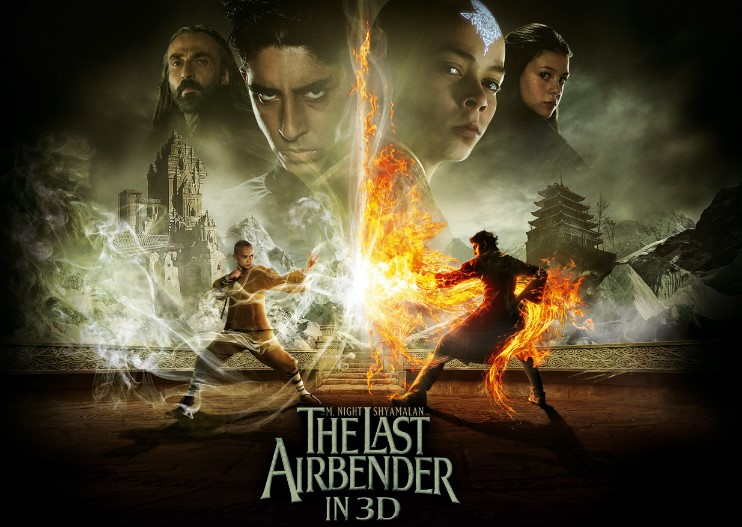
This film is all about M. Night Shyamalan. Assuming the writing, directing and producing responsibilities for a film he is involved with is his M. O. However, Night has always done this with a completely original idea and The Last Airbender is his first real shot at helming someone else’s franchise. Night’s appeal has always been that he did not particularly adhere to “the rules” of Hollywood filmmaking. When he came on the scene with The Sixth Sense in 1999, he was determined to reanimate an American Auteur movement single handedly. In regards to how M. Night Shyamalan masterminded this franchise that was underdeveloped yet full of promise, a number of phrases come to mind: jumping the shark, selling out, turning to the dark side, and buying into the bullsh*t. In my opinion, after being handed the responsibility of realizing someone else’s intellectual property, Night was enveloped by a shockwave of terror. He was so unnerved that he instantly forgot every instinct, nuance and method of unique filmmaking, so much so that he jumped on a plane back to NYU to take a refresher course in Formulaic Filmmaking 101. This series of unfortunate events culminates with the feature film known to us as The Last Airbender, a film that undercuts the brilliance of the animated series, a film that represents vintage Hollywood fumbling, and a film that in light of Night’s recent flops is simply put: uniquely M. Night Shyamalan. Bravo sir, bravo!
Drum roll for the justification of such a tongue-lashing: it begins and ends with potential. This is a twofold criticism both for Night and the Airbender franchise. Shyamalan, love him or hate him, really was the beginning of a shining light to Hollywood filmmaking. But, around the time of The Village (2004) the audience really began to doubt his infallibility when we didn’t quite “get” that particular story. Following up with Lady in the Water (2006) was received coldly by audiences with a $33 million dollar deficit in the budget to box office ratio. This leads us to The Happening (2008). You know, this could be the subject of an entirely separate essay, but if you would ever think that Marky Mark Wahlberg talking to a plant that may want to kill him is entertaining, stop reading this now and direct yourself to screenings of Jackass. The point is to really appreciate how the mighty have fallen from grace. No one needed Airbender to score with an impact that confirmed a return to greatness more than Shyamalan. This film only delivers the explosive impact of one of those Fourth of July, sidewalk snappers and confirms Night’s decent into darkness.
Airbender is a wonderful (but not so original) children’s story that features martial arts, fantasy, magic and mysticism and follows the journey of a small group of children and their unique abilities to change the world for the better. This is an exceedingly optimistic and heart-felt narrative that has been presented by our friends at Nickelodeon who have shown they can air entertaining programs that don’t involve the sliming of a random celebrity. When you strip away all the fluff and context of Airbender, what makes the story work is the action/martial arts and the relationships between good and evil. It is frighteningly similar to the scope of Dragonball Z and the parallels between these two franchises extend to both of their live action adaptations. Any professional director should be able to handle the intricacies of good versus evil blindfolded, but being able to capture martial arts on film is very difficult. Between Shyamalan and James Wong (director of Dragonball: Evolution) only Wong has had experience shooting effects heavy martial arts in The One (2001) and that was mostly thanks to the incomparable Jet Li. As a result, The Last Airbender loses a HUGE selling point because the combat in this film is flaccid and has the rapid fire intensity of a geriatric tearing up the sidewalk on an afternoon stroll. The tale of Airbender carries with it the same type of Spielberg-ian wonder delivered to us in E.T. (1982). Nickelodeon would have done better entrusting its franchise to the actual Spielberg and not a Spielberg poser.
The film itself is not the complete train wreck I make it out to be as there are some very good parts which will light up any youngster who is familiar with the animated series. The first of which is Dev Patel’s performance as the estranged Prince Zuko. If there was anyone who believed that this young thespian was a one hit wonder in what may have seemed to be a custom made cultural showcase in Slumdog Millionaire (2008) you are now put on notice that there is no glass ceiling for his career now. This may only be his second feature film and first major American production, but the intensity he brought to a character defined by bitterness, isolation and anger commands visual respect in every scene. Perhaps it was Mr. Patel’s maturity as a 20 year old playing a younger character that allows the depth of his role to transmit through celluloid via incredible eye contact, demeanor and facial expression. Of course, his performance was not limited to dramatic monologue as he was called upon to display a fair amount of physical dexterity as a martial artist. The stunts and action throughout this film never elevate above average, but Patel’s combat sequences were the most staccato and creative. Neutering the intensity of the overall action may have been a conscious decision by Shyamalan to artificially inflate the significance of the Prince Zuko character. Regardless, Patel is one of the only two actors who actually breathe life into their characters for this film.
The other actor was the title character Aang played by Noah Ringer. Had the production staff missed completely with this particular casting; the whole movie franchise (most likely a trilogy) burns up in flames. For all intents and purposes Aang is a Jesus-type savior whose specific role is to save the world from the mutual destruction of war. What makes this character significant and admired in the animated series is the fact that he is the youngest and the most powerful at the same time. This is a naturally reproduced projection of what all children feel in their extremely compartmentalized worlds full of potential which they hold absolute dominion over. This character and the sentimentality it produces is the epicenter of EVERY appeal this story has. As such, the actor playing him must be able to produce equal parts ignorance to transcendence and playfulness to seriousness. Ringer does not do a masterful job of this mainly because he is a youngster of only 13 years and most seasoned veterans in the business would struggle with such a character. All things being equal, Ringer’s performance is very adequate and his natural boyish charm covers up a lot of the deficiency. I feel that Ringer would have had a greater opportunity to flesh out his character had he been given more screen time to bond with his traveling companions. The fluidity of Ringer’s martial prowess is quite impressive onscreen but as I said previously, does not deliver the intensity of Patel’s. Ringer certainly comes off as a trained martial artist, but putting more dollars into better wire work and digital effects would have compensated for an obvious difference in physicality his character has with every other.
This film had $150 million dollar budget. There is NO EXCUSE for having your visual effects contribution to such a production be so weak! Elemental manipulation is another dogmatic hallmark to the Airbender franchise and it simply was not featured enough. When I say featured, I do not refer to the number of occasions this ability is displayed by various characters onscreen (although upping this number would have helped). I specifically refer to the quality. This magical ability is of such epic scope on the animated series that it is quite matter of fact when referenced in the film. Even at the film’s climax when an elemental catastrophe of titanic importance is being executed, it doesn’t deliver enough drama. Perhaps it was the uninspiring musical score at the moment which needed more drums and trumpets rather than strings and woodwinds? Perhaps the camera did not pull back far enough to give the audience a full appreciation for what exactly was happening? Perhaps it just sucked? No matter how you look at it, the director is at fault because it is his or her call concerning such subtleties. I guess the lion’s share of the budget went to advertising. They will need it.
The Last Airbender is a film that lulls the audience into apathy. There is a noticeable lack of some inciting incident or hook of any kind to demand one’s attention in the very beginning of the film. The application of the visual effects throughout is a cacophony of questionable framing, scope and execution. In such a character driven story, the script is devoid of character development. The cast’s overall performance is inconsistent at best. You give M. Night Shyamalan $55 million, he delivers The Sixth Sense. You give him $150 million; he delivers a dickless Prince Caspian.


